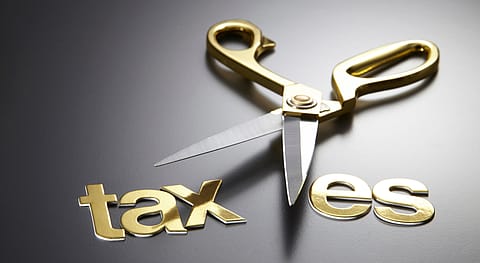Continuing tax regime based on last year’s filing may hurt you: 6 strategies to reduce your tax liability this year
The goal should not be to evade taxes but to navigate them intelligently, staying compliant, ethical, and financially ahead

What if the largest dent in your annual budget isn’t from EMIs, school fees or rent, but from taxes you could have saved with smarter planning?
With financial priorities evolving and taxpayers navigating between two regimes for FY 2025-26, it is the ideal time to refresh your tax strategy. Traditional Section 80C tactics may not be enough anymore—it’s time to adopt a more holistic and dynamic approach towards tax savings.
CA Niyati Shah, Vertical Head-Personal Tax at 1 Finance, explains six effective strategies to help you reduce the tax outgo in alignment with the broader financial goals:
Treat regime selection as a financial check-up
Don’t mechanically stick to the old or new regime based on last year’s filing. Even minor life updates, such as paying off a loan, buying a house or increased income, can shift which regime benefits you the most. Reassess annually to make the most informed choice.
Redesign your salary structure
Tax planning begins with how you earn. Instead of only focusing on deductions, coordinate with your employer to optimise your salary mix. Adding components like NPS contributions (under Sec 80CCD(2)), House Rent Allowance, Leave Travel Allowance, or tax-free reimbursements can result in substantial tax savings, without impacting your take-home or a higher in-hand.
Plug the capital gains drain
Many taxpayers unknowingly lose money to poorly planned capital gains taxes. If you have earnings from equities, mutual funds, or property sales, leverage tactics like capital loss harvesting or reinvestments under Sections 54 and 54F. Strategic timing of transactions can greatly reduce or legally eliminate your capital gains tax liability.
Recommended Stories
Use family income thresholds to your advantage
When done within legal limits, shifting income to parents or adult children who fall under lower or zero-tax brackets can help preserve more family wealth. This is especially effective for senior citizen parents or children pursuing higher education.
Prioritise triple-exempt investments
Make room in your portfolio for EEE (Exempt-Exempt-Exempt) instruments, where contributions, growth, and withdrawals are all tax-free. Options like PPF, NPS, and Sukanya Samriddhi Yojana not only reduce current liability but also build long-term, tax-free wealth.
Leverage tax-efficient debt instruments
Not all debts are bad, especially when they reduce your taxes. Instruments like tax-free bonds offer steady, post-tax returns without pushing you into higher tax slabs. For high-income individuals, these can outperform traditional fixed deposits in real terms. Additionally, consider home loans, which offer dual tax benefits:
(INR CR)
Section 80C for principal repayment
Section 24(b) for interest paid.
For first-time homebuyers, Section 80EE/80EEA can provide even more savings. When used strategically, the right kind of debt can help you build assets and reduce your taxes.
Plan smart, not last minute
Tax planning shouldn’t be an end-of-year scramble. The most efficient taxpayers treat it as a monthly discipline, not a March rush. For FY 2025-26, the goal should not be to evade taxes but to navigate them intelligently, staying compliant, ethical, and financially ahead.